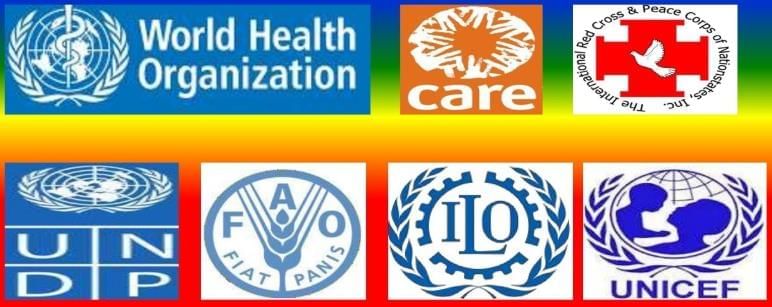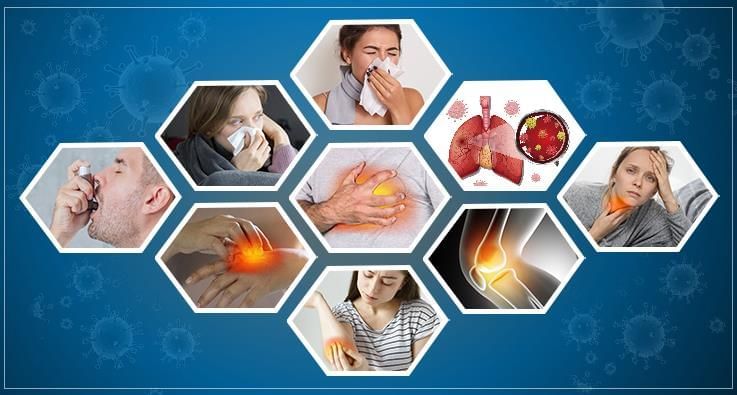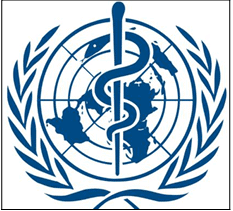Revision Notes: Health Organisations | Biology Class 10 ICSE PDF Download
Introduction

- Health is a major concern for governments around the world. They take measures at national and global levels to protect the health of their citizens.
- Various health organizations, local bodies, national organizations, and international organizations play a role in this effort.
Common Health Problems in India

India is a large country with diverse geographical and climatic conditions, leading to various health issues.
A. Food and Water Borne Diseases
- Contaminated food and water are responsible for several diseases.
- Examples include Diarrhoea, gastroenteritis, typhoid, and dysentery.
B. Insect and Air Borne Diseases
- Lack of cleanliness results in the breeding of houseflies and mosquitoes, which are carriers of certain diseases.
- Example: Malaria
- Airborne diseases include tuberculosis, whooping cough, pneumonia, and diarrhoea.
C. Lack of Medical Facilities
- The absence of medical facilities, particularly in rural areas, leads to preventable deaths and health deterioration.
D. Professional Hazards
- Child labour in various industries (such as carpet, fireworks, and glass bangles manufacturing) causes health issues due to excessive physical and mental stress at a young age.
Categories of Health Organisations
(i) Local Bodies: Local health organizations play a crucial role in maintaining public health at the community level. These include:
- Municipal Corporations: Responsible for health services in large urban areas.
- Municipalities: Oversee health services in smaller towns and cities.
- Town Area Committees: Manage health services in specific town areas.
Functions of Local Bodies: Local health organizations are involved in various essential functions, including:
- Sanitation: Disposal of waste and sewage to maintain cleanliness and prevent disease.
- Supply of Safe Drinking Water: Ensuring access to clean and safe drinking water for the community.
- Keeping Statistical Records of Diseases: Monitoring and recording disease occurrences in the area for better management.
- Vaccination: Conducting vaccination programs to prevent the spread of infectious diseases.
(ii) National Bodies: National health organizations undertake comprehensive measures for disease control and prevention across the country. These include:
- Regular Surveys: Conducting surveys to monitor the prevalence and spread of diseases.
- Identification of Transmitting Agents: Identifying the agents responsible for disease transmission and their breeding places.
- Prophylactic Immunisation: Arranging preventive immunization to protect the population from infectious diseases.
- National Institute of Communicable Diseases (NICD): Located in Delhi, NICD conducts research on infectious diseases. Previously known as the Malaria Institute, NICD plays a vital role in understanding and controlling communicable diseases.
- Pulse Polio Programme: A nationwide initiative aimed at eradicating poliomyelitis by vaccinating children against the disease.
(iii) International Bodies: International health organizations contribute to global health initiatives and disaster relief. These include:
1. Red Cross: The Red Cross is both a national and international agency founded in 1864. Its emblem features a red cross on a white background, and 8 May is celebrated as Red Cross Day. Major activities of the Red Cross include:
- Providing relief to victims of natural disasters such as floods, fires, famines, and earthquakes.
- Procuring and supplying blood to victims of war or other calamities.
- Offering first aid in accidents and emergencies.
2. World Health Organization (WHO): Established in 1948, WHO is a specialized agency of the United Nations with its headquarters in Geneva. Major activities of WHO include:
- Collecting and disseminating information about epidemic diseases.
- Setting pharmaceutical standards to ensure the purity and appropriate dosing of drugs.
- Organizing campaigns for the control of epidemic and endemic diseases.
|
55 videos|110 docs|21 tests
|
FAQs on Revision Notes: Health Organisations - Biology Class 10 ICSE
| 1. What are the common health problems faced by people in India? |  |
| 2. How do health organizations in India contribute to addressing health problems? |  |
| 3. What categories of health organizations exist in India? |  |
| 4. What is the role of the government in managing health issues in India? |  |
| 5. How can individuals contribute to improving health in their communities in India? |  |















